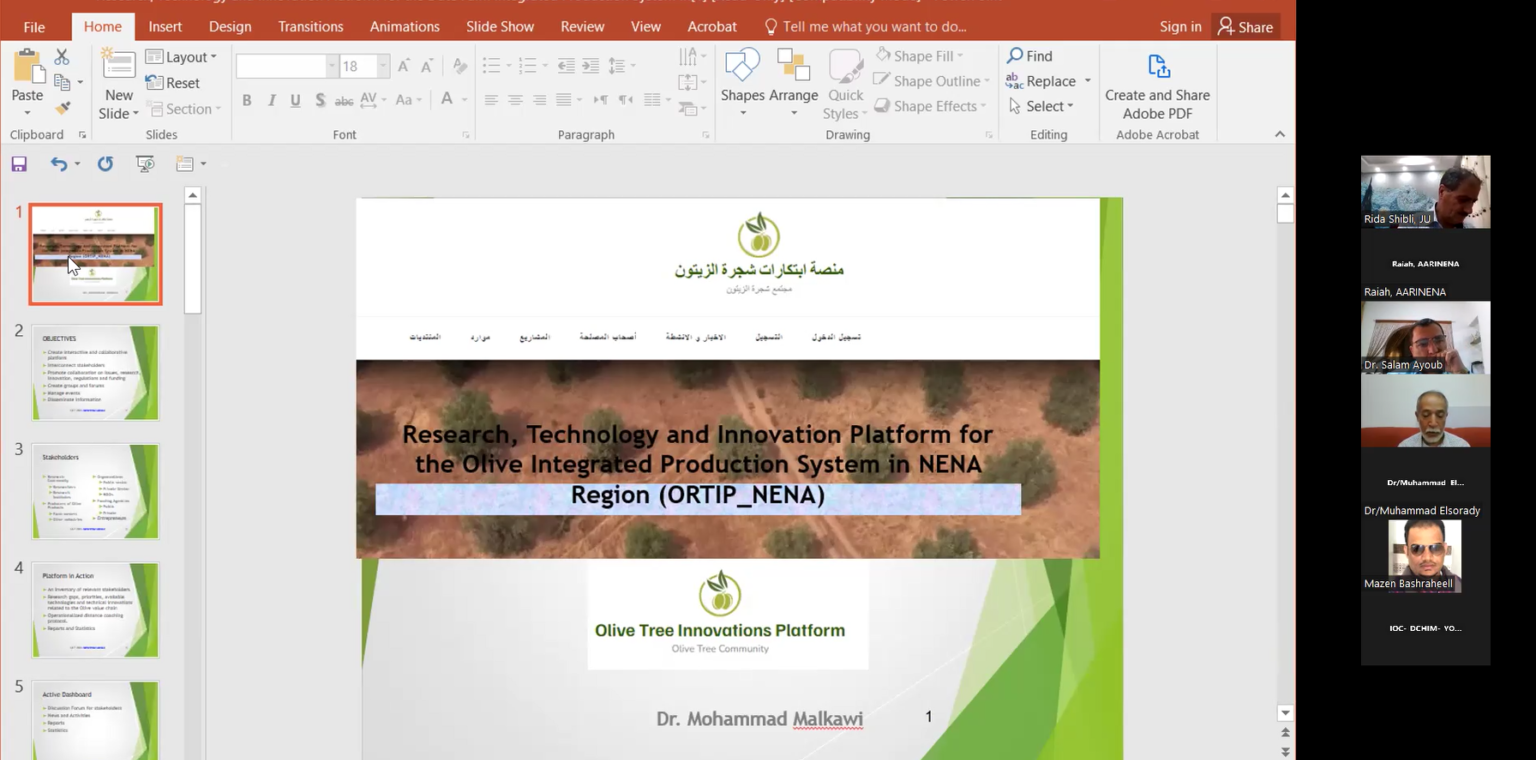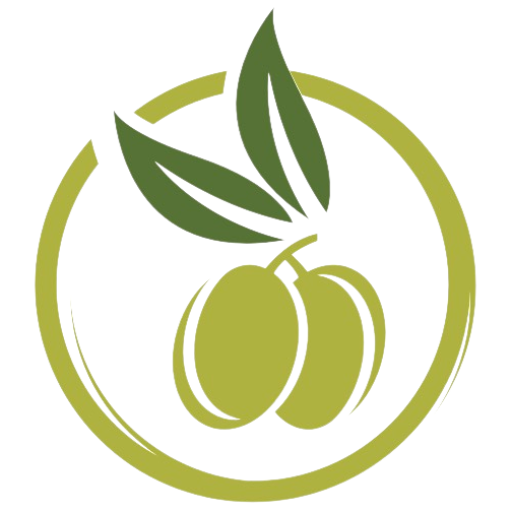AARINENA Engages Olive Stakeholders in Groundbreaking Webinar

April 29, 2024
In a bid to foster innovation and collaboration within the olive industry, the Association of Agricultural Research Institutions in the Near East and North Africa (AARINENA) recently convened a pivotal meeting with key stakeholders. The gathering centered around the development of an Olive Innovation Platform, aimed at revolutionizing the sector. This meeting is part of a series of meetings that the AARINENA is keen on holding to introduce stakeholders to the platform being developed in partnership with FAO (https://olive.aarinena.org). The aim is to understand the needs and aspirations of experts and to benefit from the feedback received from these meetings to improve the platform’s functionality.
The webinar brought together a diverse array of stakeholders, including olive growers, researchers, policymakers, and industry experts. Their collective expertise and perspectives were instrumental in shaping the vision and objectives of the forthcoming platform.
Central to the discussions was the need for a comprehensive platform that would serve as a hub for knowledge exchange, research advancements, and technological innovations in olive cultivation, processing, and marketing. Participants underscored the importance of leveraging digital technologies to enhance efficiency, sustainability, and competitiveness across the olive value chain.
Dr. Rida Shibli, the Executive Secretary of AARINENA, emphasized the association’s commitment to supporting olive producers and promoting agricultural innovation in the region. He highlighted the platform’s potential to facilitate collaboration among stakeholders, bridge knowledge gaps, and accelerate the adoption of best practices.
Key topics addressed during the meeting included:
Research and Development: Participants emphasized the importance of funding and promoting research initiatives focused on olive cultivation techniques, pest and disease management, and the development of high-yield, resilient olive varieties.
Capacity Building: Stakeholders underscored the need for capacity-building programs to empower olive growers with the latest knowledge and skills, particularly in areas such as precision agriculture, irrigation management, and organic farming practices.
Market Access and Promotion: Discussions also revolved around strategies to enhance market access for olive products, both domestically and internationally. Stakeholders highlighted the importance of branding, certification, and promotional campaigns to raise awareness and increase demand for high-quality olive products.
Policy Support: Participants called for supportive policy frameworks that incentivize investment in the olive sector, streamline regulatory processes, and address challenges such as land tenure issues and water scarcity.
As the meeting concluded, there was a palpable sense of optimism and enthusiasm among participants. They expressed confidence that the Olive Innovation Platform, once launched, would serve as a catalyst for transformative change, driving sustainable growth and prosperity across the olive industry in the NENA region.
Looking ahead, AARINENA remains committed to working closely with stakeholders to finalize the platform’s design and implementation plan, with the aim of launching it in the near future. With collaboration and innovation at its core, the platform holds the promise of unlocking the full potential of the olive sector and creating lasting benefits for farmers, businesses, and consumers alike.
© All Rights Reserved.
